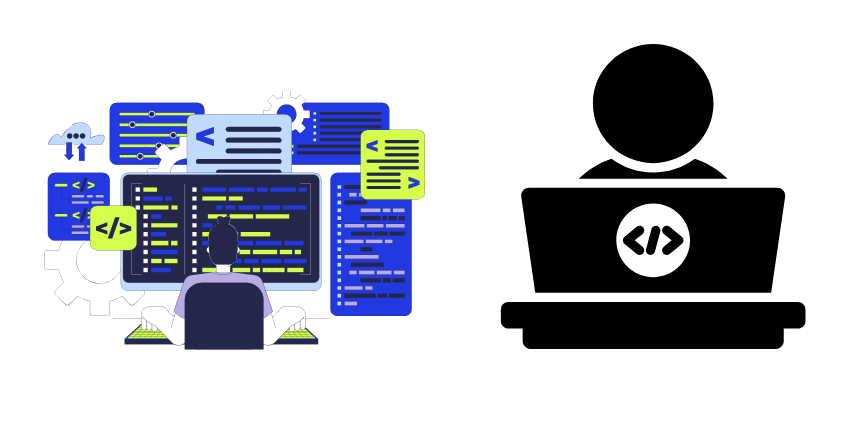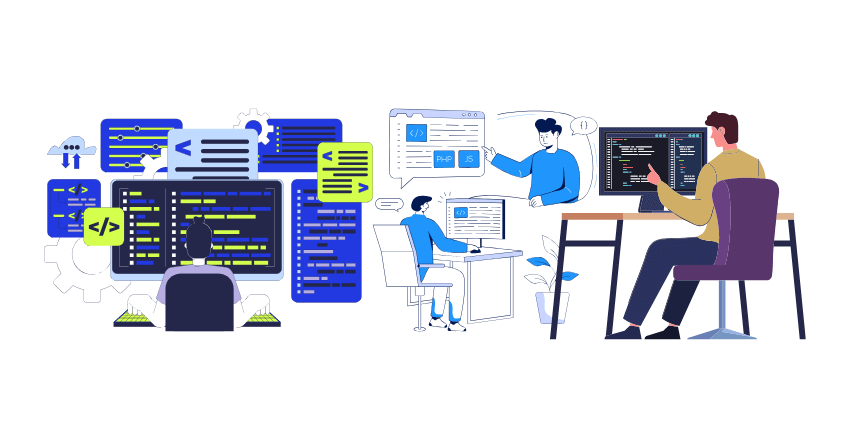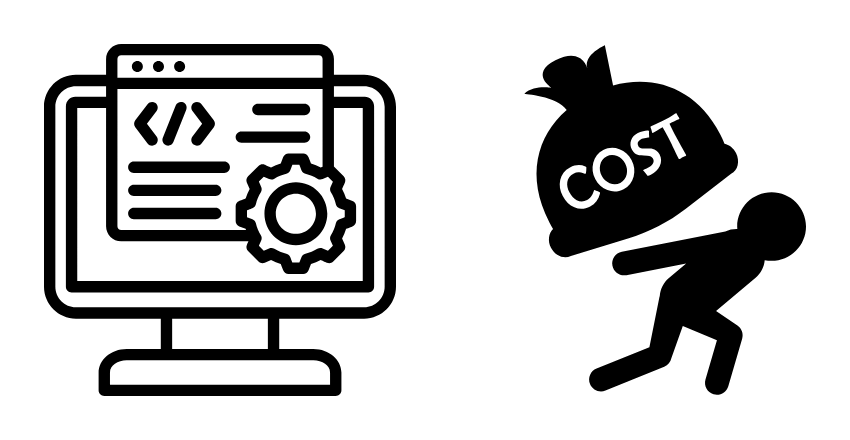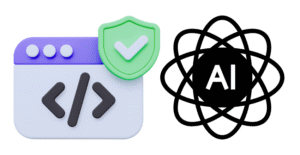Startups are always racing against time. You’ve got deadlines, investor expectations, and users demanding quick updates. To succeed, you need top-notch developers who can build fast and think smart. But hiring locally in the U.S. can be expensive and competitive. That’s why many startups are turning to nearshore software development specifically in Brazil.
What Is Nearshore Software Development?
Nearshore development is when a company outsources software projects to another country nearby. Unlike offshore development (think India or the Philippines), nearshore means working with countries in similar time zones, like Brazil. Since Brazil is in a time zone just a few hours ahead of the U.S., communication is easier, and real-time collaboration happens smoothly.
Why Brazil Stands Out for Startups
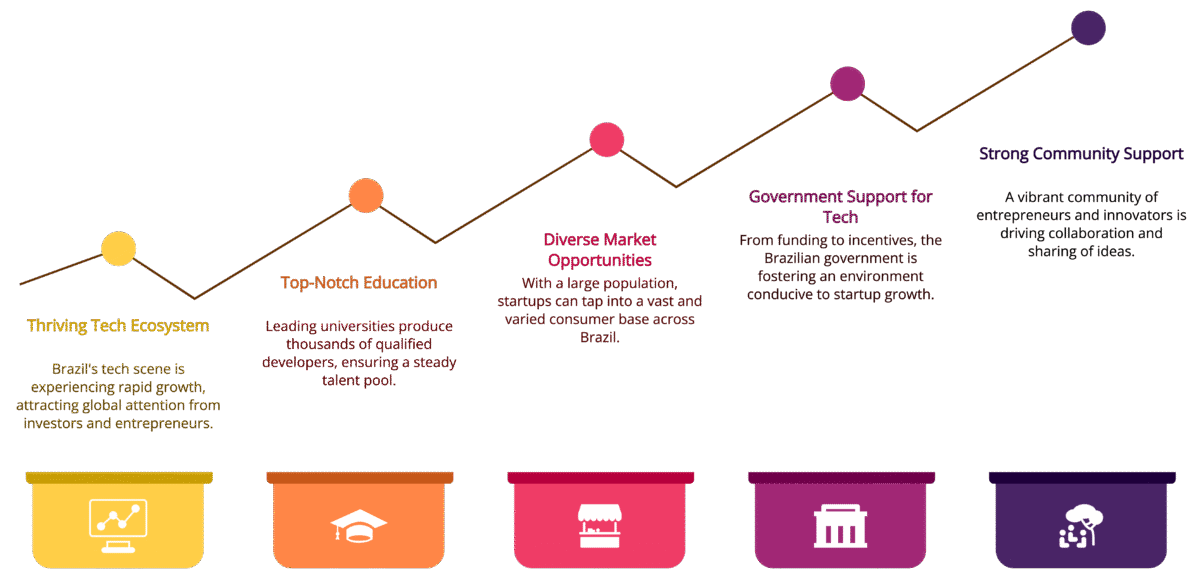
Brazil isn’t just about beaches, soccer, and Carnival. It’s becoming a hub for highly skilled tech talent, thanks to a growing focus on education, innovation, and tech investment. Here’s why startups are excited about hiring Brazilian developers:
1. Highly Skilled Developers
Brazil has a rapidly expanding tech scene. Universities in cities like São Paulo, Rio de Janeiro, and Curitiba graduate thousands of engineers and computer scientists every year. Many Brazilian developers are experts in programming languages like Python, JavaScript, and React tech stacks perfect for fast-growing startups.
2. Cost-Effective Talent
Hiring U.S.-based developers can cost startups upwards of $150,000 per year. In Brazil, you can find equally skilled developers at a fraction of the cost. This doesn’t mean sacrificing quality. You save money while still getting highly capable professionals who can scale your projects.
3. Time Zone Compatibility
Brazil’s time zone (BRT) is only 1 to 3 hours ahead of U.S. Eastern Time, depending on the season. This overlap makes scheduling meetings and daily standups simple. Compare that to working with offshore developers in Asia, where the time difference can be 12+ hours, and you quickly see the advantage.
4. English Proficiency
Many Brazilian developers speak English fluently. Brazil invests heavily in language education, especially in the tech sector. Startups won’t face major language barriers, which reduces project delays caused by miscommunication.
The Benefits of Nearshore Development for Startups
So, why does nearshore development give startups an edge over traditional hiring? Here are the key advantages:
Faster Project Turnaround
Nearshore teams allow for quick iteration cycles. Since developers in Brazil work in similar time zones, they can sync with your team in real time. This helps speed up tasks like bug fixes, feature rollouts, and code reviews.
Scalability
Need to scale your dev team quickly after a funding round? Nearshore partners can provide flexible staffing. You can hire experienced developers on demand, scaling your team without the overhead costs of hiring full-time U.S.-based employees.
Reduced Costs Without Sacrificing Quality
Every startup is focused on extending its runway. Nearshore development allows you to save on salaries and operational costs without compromising the quality of your software.
How to Find a Reliable Nearshore Partner in Brazil

If you’re ready to work with nearshore developers, you’ll need to choose the right partner. Here are a few tips:
1. Research Development Agencies
Look for well-reviewed software development firms in Brazil. Ask for case studies or references from startups they’ve worked with.
2. Test with a Small Project
Start with a smaller project to gauge the team’s communication, technical skills, and ability to meet deadlines.
3. Ensure Strong Communication Channels
Establish clear communication processes. Use tools like Slack or Microsoft Teams to stay in touch and platforms like Jira or Trello to track tasks.
4. Align on Time Zones and Work Hours
Make sure the development team can overlap with your U.S. business hours. This allows for real-time problem-solving and efficient collaboration.
Top Development Firms in Brazil for Startups
Finding the right nearshore development partner is crucial to your startup’s success. Brazil is home to several reputable tech firms that specialize in software development, mobile apps, digital transformation, and more.
BizCoder
BizCoder is a software development company focused on startups and mid-sized businesses. They specialize in custom software, mobile apps, and scalable SaaS solutions. Known for their commitment to agile methodologies, BizCoder helps startups speed up their development cycles while ensuring high-quality code.
CI&T
CI&T is a global digital solutions provider with offices in Brazil, the U.S., and other major markets. They specialize in large-scale digital transformation, custom software, and enterprise-level app development. Startups can benefit from CI&T’s expertise in cloud technology, AI, and scalable app development.
Kaynes
Kaynes provides a wide range of IT and software development services, including product engineering, embedded systems, and IoT development. Startups with a hardware or embedded tech component can benefit from Kaynes’ expertise in integrating software with cutting-edge technology solutions.
Samba Tech
Samba Tech focuses on media streaming and digital content solutions. They have extensive experience helping companies create scalable platforms for video and content distribution. Startups building platforms related to streaming or digital media may find Samba Tech an ideal partner.
ArcTouch
ArcTouch specializes in mobile app development and IoT (Internet of Things) solutions. They’ve worked with a variety of industries, offering services in mobile apps, smart device integration, and custom software. Their experience with startups includes rapid prototyping and agile development, which helps launch products quickly.
Comparison of Nearshore vs. Offshore vs. Onshore Development Models

When choosing how to scale your development team, it’s important to weigh your outsourcing options carefully. Each model onshore, offshore, and nearshore has its advantages and challenges. Let’s compare them across key factors like cost, time zone compatibility, communication ease, and other criteria important for startups.
| Model | Cost | Time Zone Compatibility | Communication Ease | Talent Availability | Project Control |
|---|---|---|---|---|---|
| Onshore | High | Full overlap | Easy (same language/culture) | Limited (high demand in tech) | High (local team interaction) |
| Offshore | Low | 8–12 hours apart | Difficult (delays, time gap) | Abundant | Moderate (distance challenges) |
| Nearshore | Medium | 1–4 hours apart | Easy to moderate | Growing (esp. in Latin America) | High (real-time collaboration) |
Onshore Development
Onshore development means hiring developers within your own country. Startups often prefer this model because there are no time zone or language barriers, and cultural alignment makes collaboration seamless. However, the downside is the high cost of labor, especially in regions like Silicon Valley or New York.
Best for:
- Companies with large budgets
- Complex projects requiring constant collaboration
- Startups needing tight control over their team
Challenges:
- High salaries and competition for tech talent
- Limited scalability due to cost
Offshore Development
Offshore development involves hiring teams from countries far from your own, often in Asia (e.g., India, the Philippines). It’s the cheapest option due to lower labor costs, but time zone differences and language barriers can lead to communication delays and project misunderstandings.
Best for:
- Startups with tight budgets
- Long-term, less time-sensitive projects
Challenges:
- Significant time zone gaps (12+ hours)
- Difficult to coordinate real-time collaboration
- Potential for cultural or language misunderstandings
Nearshore Development
Nearshore development offers a middle ground. You outsource to countries nearby (like Brazil), which allows for better time zone alignment and smoother communication. Developers often speak English fluently, and you can hold meetings and resolve issues quickly. Costs are lower than onshore but higher than offshore, making it a cost-effective option for startups.
Best for:
- Startups needing a balance between cost and collaboration
- Agile development projects requiring daily standups and fast iterations
- Companies expanding in regions like Latin America
Challenges:
- Slightly higher costs than offshore
- Still requires clear communication strategies
Why Nearshore Is Ideal for Startups
Startups thrive on fast, flexible collaboration. Nearshore development, especially in tech hubs like Brazil, combines affordable rates with real-time teamwork, reducing delays and improving project outcomes. Unlike offshore, you won’t need to wait a full business day to resolve issues, and developers are often trained to understand U.S. business needs.
This comparison can help you decide which outsourcing model best fits your startup’s goals, budget, and project complexity. Would you like me to create a custom graphic summarizing this information?
If you’re a startup struggling to find affordable, high-quality developers in the U.S., nearshoring in Brazil might be the solution you need. You’ll save money, collaborate seamlessly in real-time, and gain access to a growing pool of talented professionals.


